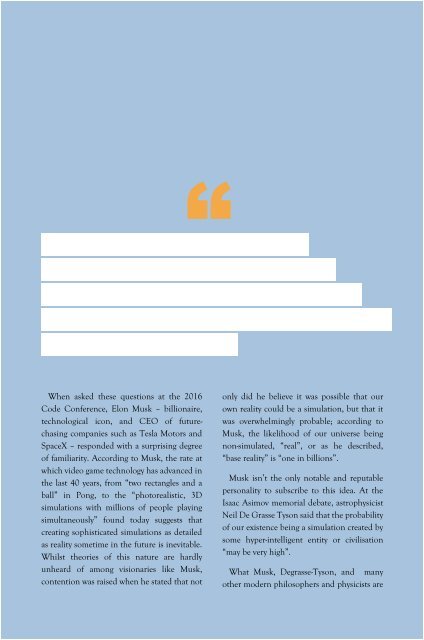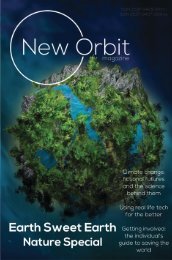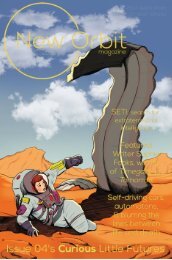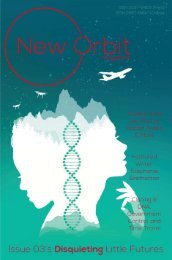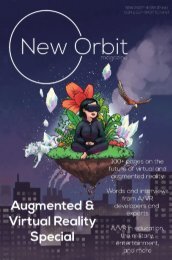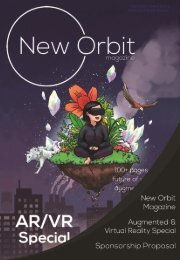Feb 2018 v01 online
((Incomplete formatting))
((Incomplete formatting))
Create successful ePaper yourself
Turn your PDF publications into a flip-book with our unique Google optimized e-Paper software.
“<br />
When asked these questions at the 2016<br />
Code Conference, Elon Musk – billionaire,<br />
technological icon, and CEO of futurechasing<br />
companies such as Tesla Motors and<br />
SpaceX – responded with a surprising degree<br />
of familiarity. According to Musk, the rate at<br />
which video game technology has advanced in<br />
the last 40 years, from “two rectangles and a<br />
ball” in Pong, to the “photorealistic, 3D<br />
simulations with millions of people playing<br />
simultaneously” found today suggests that<br />
creating sophisticated simulations as detailed<br />
as reality sometime in the future is inevitable.<br />
Whilst theories of this nature are hardly<br />
unheard of among visionaries like Musk,<br />
contention was raised when he stated that not<br />
only did he believe it was possible that our<br />
own reality could be a simulation, but that it<br />
was overwhelmingly probable; according to<br />
Musk, the likelihood of our universe being<br />
non-simulated, “real”, or as he described,<br />
“base reality” is “one in billions”.<br />
Musk isn’t the only notable and reputable<br />
personality to subscribe to this idea. At the<br />
Isaac Asimov memorial debate, astrophysicist<br />
Neil De Grasse Tyson said that the probability<br />
of our existence being a simulation created by<br />
some hyper-intelligent entity or civilisation<br />
“may be very high”.<br />
What Musk, Degrasse-Tyson, and many<br />
other modern philosophers and physicists are


